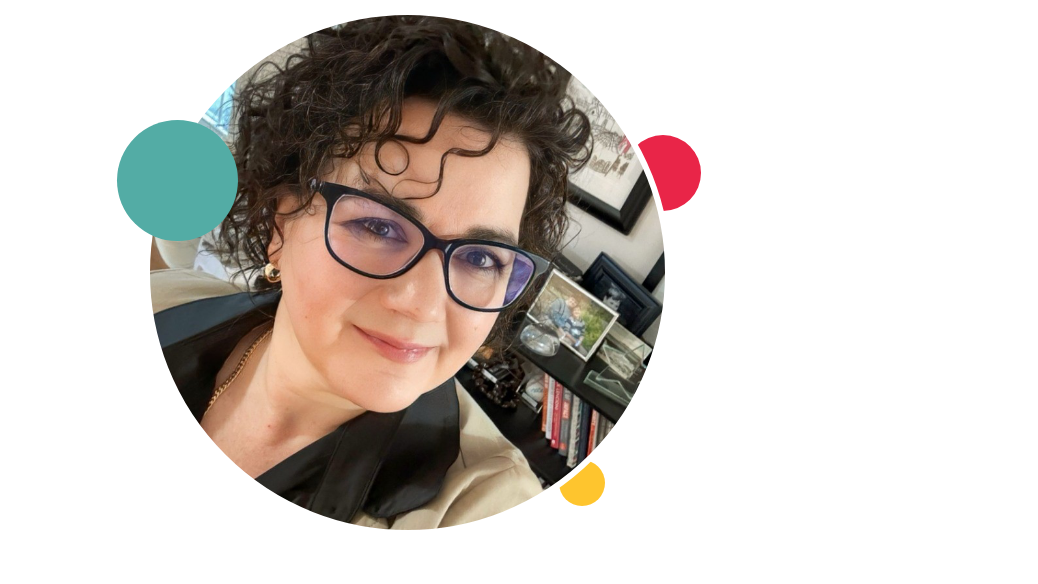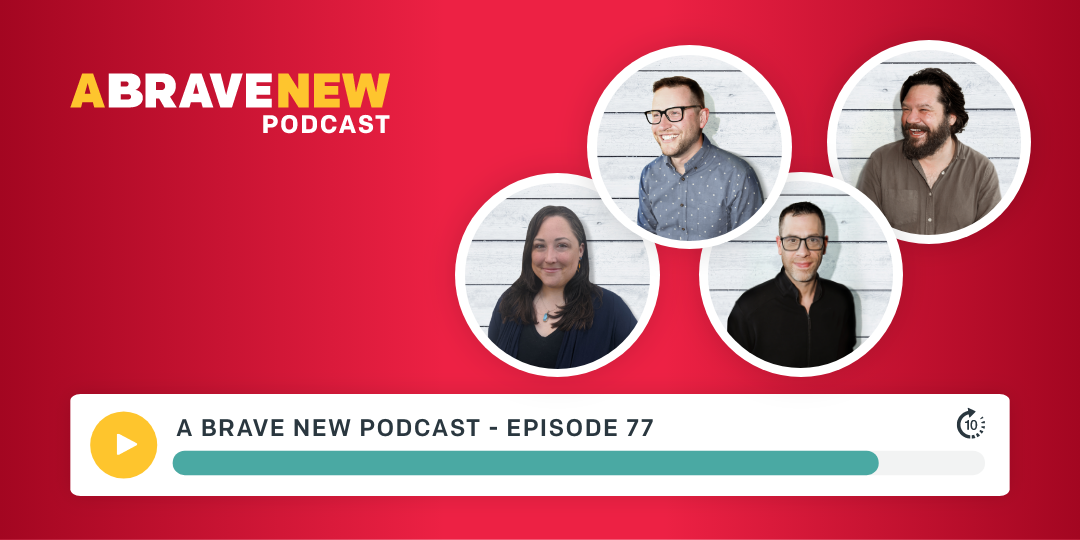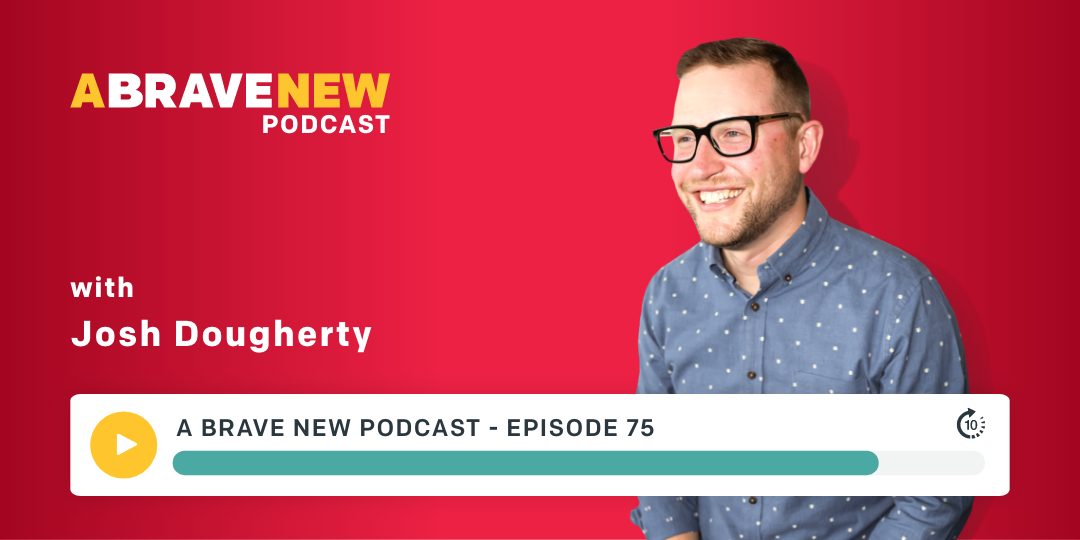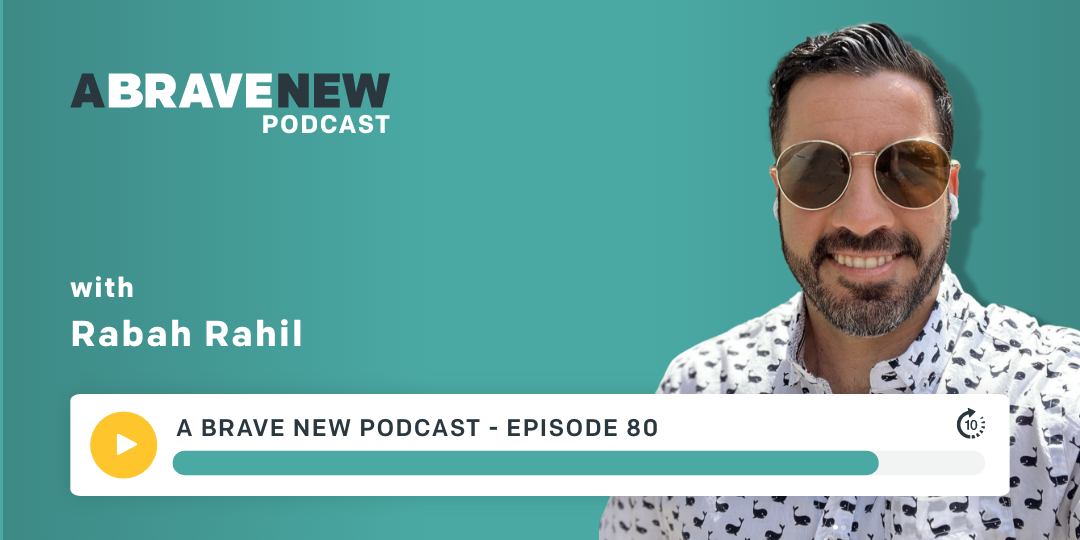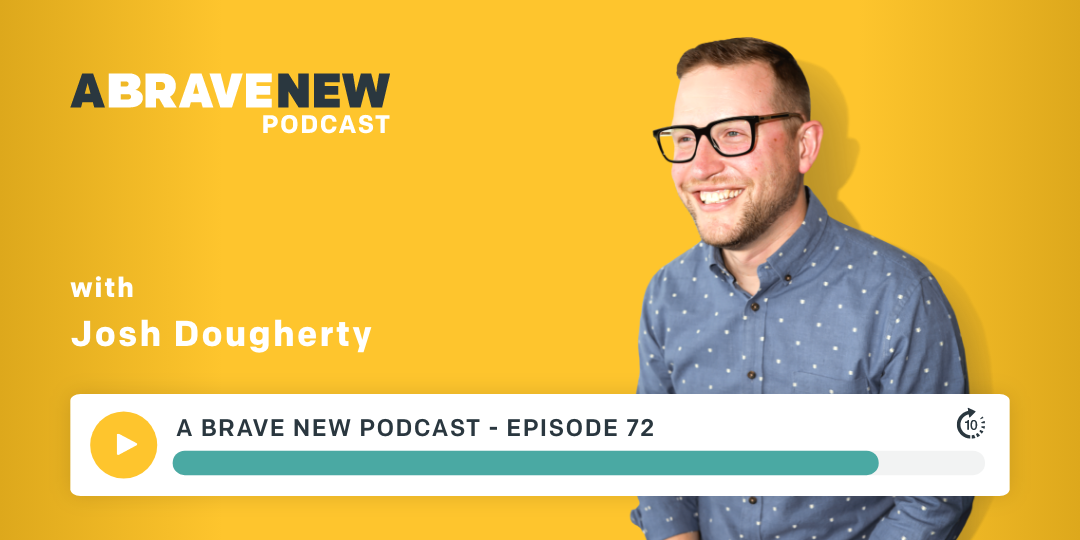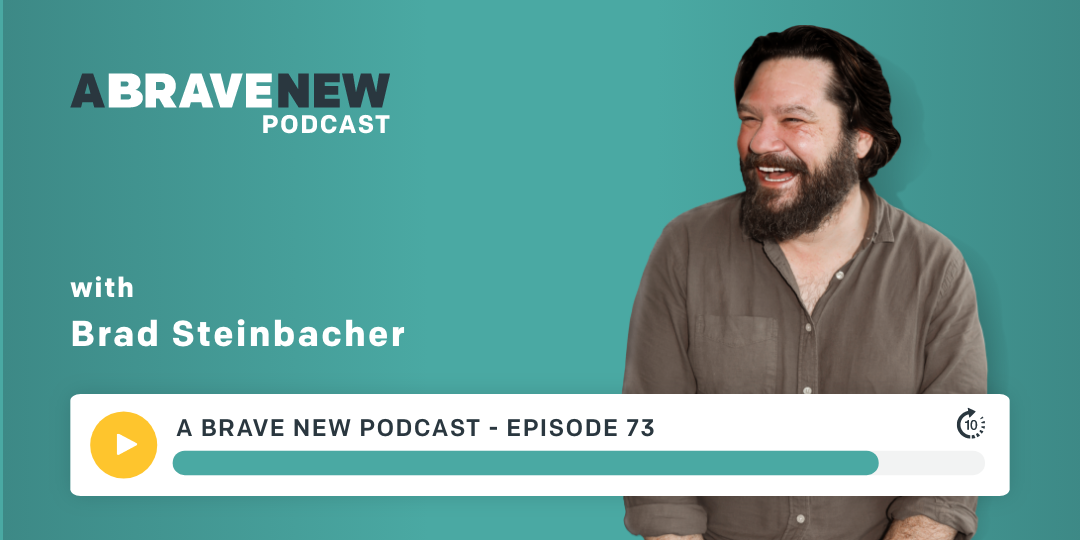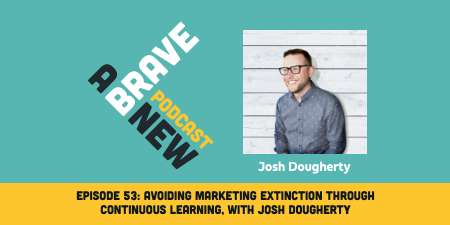Elizabeth Sutherland, APR, is the Sutherland of Sutherland Weston Marketing Communications. Growing up in Northern Maine, after college Elizabeth worked for the United States Senate, the American Red Cross, and Northern Light Health in increasingly complex public relations and marketing roles before launching out on her own. She is a graduate of the Bangor Region Leadership Institute and winner of the 2016 Eames Leadership Award, the Girl Scouts of Maine 2017 Juliette Award for Leadership, and a 2022 laureate of the Maine Business Hall of Fame. She serves on several non-profit boards and in leadership roles for a variety of local and state-wide organizations.
Elizabeth is an experienced public relations professional with expertise in campaign strategy development, brand development, budgeting, research, and measurement. She is also an avid reader, writer, runner, mother of two boys, and wife to a radio-talk-show host.
As an entrepreneur, Elizabeth directly understands the challenges many small businesses face and has made it her mission to help grow small business dreams whenever she can.
What you’ll learn about in this episode:
- An overview of the fundamentals of public relations
- Why public relations is one of the essential components to a business growth strategy
- The ways that public relations can (and should) expand because what we oftent think of crisis communications into a long-term brand building venture
- Specific ways that PR can help you drive growth for your organization as you are seeking to scale
- The importance of authenticity in a PR strategy
- Why public relations requires long-term commitment to see sustained success
- How to get quick wins while you’re building towards that long-term success
- Things to look for when selecting a public relations partner for your business
Additional resources:
- Josh Dougherty on LinkedIn
- Learn About Josh Dougherty’s Keynote Speaking
- A Brave New’s Website
- Elizabeth Sutherland on LinkedIn
- Sutherland Weston’s Website
Transcript:
Josh Dougherty:
Welcome to A Brave New podcast. This is a show about branding and marketing, but more than that, it's an exploration of what it takes to create brands that will be remembered and how marketing can be a catalyst for those brands' success. I'm Josh Dougherty, your host. Let's dive in.
Hello and welcome to the show today. I'm super excited to have a good friend, Elizabeth Sutherland, join me. Elizabeth is the Sutherland of Sutherland Weston Marketing Communications. They're an agency located out of Maine. And she has a wealth of experience helping brands raise their profile and overall is an experienced public relations professional with expertise in campaign strategy development, brand development, budgeting, research, and measurement. She most of all is really, really smart, and so that's why I was excited to have her join us to talk to people who haven't thought that much about public relations for their brand to this point. And, to talk them through why they should be thinking about that, how to layer it in on top of their marketing and brand strategies, and how to really grow their brand using public relations.
She understands the challenges businesses face. She's made it her mission to help them, especially helping small businesses grow and accomplish their dreams. So I think it's going to be a really relevant conversation today. And with that, I want to welcome her to the show. Well, hi Elizabeth. It's great to have you on the show today.
Elizabeth Sutherland:
Thanks. Thanks for having me, Josh.
Josh Dougherty:
Awesome. I'm excited to talk a little bit about PR and how we can use that to grow brands. But before we dive in, I obviously provided a little bit of an intro about you already, but I'd love for you to share a little bit about your story. Tell me a little bit about your career path, where it's taken you, for the listeners to hear.
Elizabeth Sutherland:
Sure. I'd love to. So, a funny fact about me, I actually majored in biology in college. And I had no real intention of getting into public relations or marketing. But my work study job was in development and I got it because on the very first move-in weekend—the first day that I was at school as a freshman—I bumped into a college administrator who was doing the friendly thing and chatting with all the new students and their families as they were loading in.
And she and I struck up a conversation and she mentioned that she was the director of development and she began to explain herself. And I said, "Oh, no, I understand what that is. That's what my mom does." And she was so excited, Josh, that she asked me if I needed work study, and I said, "Yes, I do." And she said, "I have a job for you." They had a difficult time finding students who wanted to work in development in advancement because they didn't really understand it.
So while I was in school for those four years of undergrad, I really learned from seeing what happens in an advancement office, and it really helped shape my understanding of building relationships and finding good ways to communicate with people over a longterm.
Josh Dougherty:
I'm smiling about that because like you I had totally unrelated college majors. I was a Latin American studies and history major and then right out of school, I worked in fundraising and development for Habitat for Humanity and fell in love with marketing. It's a weird journey.
Elizabeth Sutherland:
Yeah, I did too. One of my early jobs was working for the American Red Cross in development and those skills are highly transferable into the PR communications field. So, like most professionals, I had increasingly complicated and professional level roles until I started my own company about 20 years ago because I realized that what I loved doing, I wanted to do for more than just one company at a time.
Josh Dougherty:
Yeah. I think that's common for many of us in the agency world. You want to be able to hop around and have multiple conversations, experiences, push multiple brands forward.
Elizabeth Sutherland:
I think so. And what I love about it is that you get to be sort of a mini expert in a whole bunch of different industries or fields. I love learning and this is a great career for that.
Josh Dougherty:
Yeah, nice. What are you focused on now? What are you most excited about? You've obviously run a successful agency for a couple decades, but what's keeping you excited today?
Elizabeth Sutherland:
One of the things that we're doing here at Sutherland Weston that I'm really excited about is we've been honing our understanding of how to deliver practical and tactical advice to our clients. So, especially through the pandemic and in these last couple of years, what we've seen is a shift from managing all of the collateral materials and all of the pieces for clients to really helping more to share—at a higher level—the strategy and the expertise and the consulting expertise that folks need in order to really shape their business in the way that they want it to go.
Josh Dougherty:
Nice. And you're also dipping your toe into the world of events too. You've had a conference for two years that you're running. I don't know if you wanted me to bring that up, but I'll-
Elizabeth Sutherland:
No, it's fine. It is. We've had a conference for a couple of years called Maine-Stay, and it's going really well. And one of the reasons that we started Maine-Stay is because there wasn't a full-scale marketing conference in the state of Maine that provided national level expertise and insight. And we really wanted to be able to bring that to our small state. It's a relatively small state. And we wanted to bring that here so that the small and medium-sized businesses in Maine had an opportunity to get that level of professional development without having to travel too far.
Josh Dougherty:
Yeah. So it's how you described it there, it's almost like that is an extension of that shift to being someone who's bringing expertise.
Elizabeth Sutherland:
I think it really is. Yes. Yeah.
Josh Dougherty:
Yeah. Awesome. Well, one of the things that I've already appreciated about you in our conversations is your expertise in the area of PR. I grew up as a brand and content type person, and so, as that young marketer, I think I didn't understand or fully appreciate all of the different disciplines that come to building awareness, building attention. But over the last few years, I've really come to appreciate the impact that a PR strategy and a well-executed PR strategy can have.
So the reason I wanted to talk to you today is really to learn from you and to hopefully have my audience learn from you about how PR can push their brand forward. I'd love to hear first for folks who may not be as familiar with the details of PR, could you give a brief overview of how you would explain it to folks?
Elizabeth Sutherland:
Sure. So I think the key to understanding public relations is that it's really about managing and disseminating information. So it's not that different from traditional marketing or advertising in its foundational descriptor. But the nuance difference in public relations is that it's really about shaping and maintaining the image of a company over a long-term. And in doing so, developing a relationship with the audience that you are communicating with.
So the key elements of PR are media relations. Everybody understands that, it's pitching stories and talking to the media about your brand and your business. Crisis management, other people also really quickly understand when something goes really wrong, you want to have a good PR professional at your elbow helping you to plot forward. And we can all look at experiences and current events where we can see people who've had good PR and support, and advice and counsel, and folks who haven't.
But I think the other pieces that really get close to traditional marketing and advertising that people don't often think about are content creation and social media management. Because in a lot of ways, we tie those two components to marketing in a traditional sense, but they're also really important in public relations as well.
Josh Dougherty:
Yeah, that's really interesting. And I always think of content creation as the place where there's maybe the most overlap. But where do you think the divergence is most, I don't know, visible? If someone's just doing marketing, they may be doing content creation, they may be doing a little bit of that PR via social media because they have to as a brand. But what are the things they might miss if they aren't seeking out public relations as a standalone discipline?
Elizabeth Sutherland:
Well, I think that marketing, I think both aim to build that positive brand image. But I think they diverge where in marketing it's traditionally focused on driving sales and generating leads, promoting specific products or services, whereas PR is concerned more with managing a company's reputation long-term and building relationships long-term with the public and also in creating a favorable environment for that company.
So whereas the target audience for marketing is usually customer segments, PR addresses a broader audience that is media stakeholders, employees, the general public, not just potential customers.
Josh Dougherty:
Yeah. So it sounds like, I mean, my core discipline in branding, there's a lot of overlap between PR and branding, right?
Elizabeth Sutherland:
I think so. In fact, here at Sutherland Weston, we often talk about them synonymously with our clients. Maybe not synonymously, but at the same time.
Josh Dougherty:
I mean, they're pretty synonymous, right, because they're the two disciplines in our space that are looking beyond the ...
Elizabeth Sutherland:
The sales and the promotion.
Josh Dougherty:
... I know, this quarter, this year's timeline.
Elizabeth Sutherland:
Exactly, exactly. But public relations, as can branding, can really play a role in this quarter, this month, and how well you can do.
Josh Dougherty:
Totally. Well, for those who aren't engaged in it, I think—and this is true for me as I got started working with more public relations professionals, experts— it's not uncommon for people to view it as reactive. And I think this comes from the crisis communications point that you brought up.
Elizabeth Sutherland:
Exactly. Yeah.
Josh Dougherty:
That's the only time that they either see the presence of someone who's a public relations expert or they can totally tell that there's an absence of it. So, why do you think people often view it as just a reactive discipline?
Elizabeth Sutherland:
I think you're spot on, Josh. I think there are several factors, but I think it really comes from that crisis management approach where all of a sudden the spokesperson for an organization is sharing something and the news is reporting what is happening from a public relations perspective. Media relations also is the classic, we classically see the public relations person as being the spokesperson and either pitching to the media or being in front of the cameras and delivering a message for them.
And so those things happen when somebody asks a question or when there is an incident. And I think that folks outside the field might not be aware of the strategic proactive planning that goes into public relations such as brand building and thought leadership and relationship management. And all of those things must take place ahead of time in order for that crisis communication or that media relations work that a PR professional does to be effective.
Josh Dougherty:
Yeah. So as we think about all that proactive planning, all the media relations, the relationship building that happens behind the scenes, it's under the surface, people don't see it when it's happening, but you see the benefit as you maybe launch something new. Is that the key thing that you would talk about with someone as you try to change their perspective to see public relations as a proactive discipline? Or are there other elements that you would talk about as well?
Elizabeth Sutherland:
So I think that there are a number of elements that I would highlight if I were trying to share with somebody how to understand that public relations is a larger, more thoughtful discipline than just a reactive one. But I would absolutely start with strategic planning. Understanding the strategic plan, the long-term vision, crafting a narrative around that and building a brand identity over time, not just responding to events as they happen. That's the key to a strong and solid public relations program.
But I also think that other components that really are forward-thinking and long-term visions are developing thought leadership out of the leadership of your organization. Working to establish a company and its executives as the experts with expertise that no one else has is really beneficial, not just to the individual leader, but really to the company itself. Because people like to work with smart people, they like to work with people who are cutting edge. They want somebody else to take the risks, to understand the nuances so that they can benefit from that.
And I also think that PR involves a lot of education and folks don't really think about that. So, public stakeholders, media, company employees, they all need to understand the initiatives, the values, the industry developments that are taking place inside a company and doing that is something that requires a proactive approach. It's not just trying to explain your culture to a prospective employee when you're looking to hire someone. If you haven't done the work to have the social media channel that shows months and months, if not years and years, of that culture being supported, then it's just not as believable. So that's really the game when it comes to public relations.
Josh Dougherty:
I love this whole conversation because, to me, it inspires thoughts about true authenticity in how you're showing up as a company. Because what you're describing is you have to be at it and you have to live it out over time.
Elizabeth Sutherland:
Over time. That is the key to a quality public relations plan.
Josh Dougherty:
Yeah.
Elizabeth Sutherland:
Yeah.
Josh Dougherty:
I mean, we all talk about that for marketing and branding, but it's good to hear like, okay, yeah, you've got to lay the groundwork over time, otherwise no one's going to believe you when you say you believe in something.
Elizabeth Sutherland:
I really think of public relations, marketing, and advertising as three circles that overlap in a Venn diagram, right?
Josh Dougherty:
I agree.
Elizabeth Sutherland:
And in that sweet spot in the middle is really where a lot of this work happens, but all of it supports one another in a really specific way. So, it's important to pay attention. It is the third leg of a three-legged stool.
Josh Dougherty:
Totally. When I talk about branding with someone, I share that building a successful brand is all about memory curation. I think of this—maybe this comes from my past studying history or a brother as an artist. So we've been to a lot of museums so this idea that you're curating a whole experience around something. I think you've gotten into it a little bit, but I'd love to hear you talk a little bit more about how PR helps curate that memory around a brand or create a lasting memory or a specific brand imprint for a brand in the market.
Elizabeth Sutherland:
That's a really good question. I think that one of the key components to quality public relations is the concept of storytelling. So, creating those compelling narratives, and I don't mean that you have to tell a story, right? We're not talking about fiction, but we're really talking about creating a sense of your company or your person in a way that people can really understand. And as humans, we respond to stories best. So anytime we can create a narrative rather than a list of bullets, it's helpful.
And that is something that PR can do for you. And when you have those stories and you consistently share them over time and they align with your brand's values and mission, PR can really help cement that in a prospect's mind or in the media's mind or in the general public's mind. And I also think that one of the things that PR can do that sometimes certainly advertising and marketing can attempt to do but it's not as successful if they don't have the opportunity to build that narrative—is to really create, to evoke an emotional connection between the brand and the end user. Oh, sorry, go ahead.
Josh Dougherty:
Go ahead.
Elizabeth Sutherland:
Oh, I was just going to say, and I think that that can help make those memories stronger and more enduring.
Josh Dougherty:
Yeah. Can you dive into how that emotion is evoked? I think that's really interesting, right? Because especially in maybe brands that aren't as exciting, they struggle to be emotional or to build emotional connection at all.
Elizabeth Sutherland:
Sure. I think different brands have different types of emotions that they can evoke more easily than others. So let's take, I'm going to think about a particular client of ours, which is rather high-tech manufacturing. They're a manufacturer of the future. A lot of it is robotics. And they use composites and resins in order to make super strong pieces.
Josh Dougherty:
Yeah.
Elizabeth Sutherland:
I don't have an emotional connection to what I just described to you. It's composites, it's resins, it's robots. But the reality is that what they are making are shelters for explorers and militaries to use when they are in regions of the world that are not human friendly. Either they're super cold or they're super hot. And so they're building these houses in a box that can come together within a matter of hours because they're snapped together almost like Legos. And when they're all said and done, they're airtight. They have filtration systems and HVAC systems that allow them to operate in really remote and cold or really remote and hot locations.
So by beginning to share stories about how lives are protected and saved from the outcome of this composite and this resin, you can really begin to build a relationship with the public that you're talking to and the company that you are. It's really about thinking about how your end product gets used or your end service is valued by the public and making sure that is the story that you're curating over time that really can make a difference.
Josh Dougherty:
Yeah. So you're getting way beyond the features of what you're doing on a day-to-day basis.
Elizabeth Sutherland:
Exactly. Exactly. Because you can talk about resins and composites all day long and how cool it is that it's put together by a robot, but that's not really what's going to make people feel good about your product or services.
Josh Dougherty:
Totally. So, as we think about that process and organizations that are in growth mode that maybe want to get noticed quickly, even if they're doing something like that high-tech manufacturing, it's maybe not the most exciting field to be in but they're seeking to drive major growth. What are some tactics that you think an organization should be thinking of as they're layering public relations in with their marketing activities?
Elizabeth Sutherland:
Yeah. So there are so many, right, we could do an entire podcast just on this one question alone, Josh.
Josh Dougherty:
Exactly.
Elizabeth Sutherland:
But I think I would start first and foremost with thought leadership. I can't stress how important it is for your leaders to be considered smart, thoughtful, and experts in their field. It helps to build credibility and authority for themselves and for their company and when you are in a growth mode, that's crucial. I also think that publishing articles, participating in industry panels, speaking at conferences, all of those things also just raise your awareness generally. So, it's good public relations, it's good thought leadership development, it's good marketing. It can really help a company stand out from the crowd.
I think the next piece that I would say is a classic PR strategy to make sure you don't lose out of the basket. Everybody has to choose. We know that you can't do everything just like you can't be everything to everybody. But thought leadership is important and having a strong media relations program is also important.
So knowing the key media outlets for you, and if you're a mom and pop main street business, that's the local media in your hometown. But if you are working with a specific industry, then there are two or three trade publications that everybody reads or they at least get their newsletter in their inbox. And those are the places where you want to develop relationships because being featured in those outlets really can boost your visibility and your credibility.
We are still a society that believes if it's printed in the paper or on a website, it must be true. And so, it's important to show up and be there. Yeah. And then, I think, making sure that your content marketing and your PR strategy have some synergy is also really, really key.
Josh Dougherty:
Nice. So if we go back to thought leadership for a second, how do you measure success in that sort of effort? When you're working with someone on a strategy over six months, a year, or longer, what does success look like?
Elizabeth Sutherland:
That's really a good question, Josh. And there are two trains of thought. Traditional public relations used to measure a lot of that with how many hits you got and how many page views happened. And I'm not a big fan of that. I think those numbers are not necessarily indicative of the value that you're having. It's a little bit more work, but we really like to make sure that we are tracking your thought leadership against some key performance indicators that really measure your relevance in the field.
So how many times are you being asked to speak? Are people seeking you out or are you constantly having to push yourself forward? And sometimes, those numbers are really, really small because in some industries we're talking about, there might be three conferences a year that makes sense for you to speak out. But usually, when we work closely with business leaders, they know when their credibility is growing. The phone rings more often for them for advice and counsel and not just for business opportunities. And that makes a difference as well.
So, we work very closely with the folks that we are building a thought leadership program with to make sure that they understand what to be looking for when it comes to measuring the success of the effort. At the end of the day, we also keep track of how many times that white paper is downloaded and how many likes you got on LinkedIn.
Josh Dougherty:
Exactly. All the basic things too, right?
Elizabeth Sutherland:
All the basics. Yeah.
Josh Dougherty:
Yeah. How long does someone need to stick with this? So they're trying to put this together, they have an idea of the metrics they're going for. What is the length of effort-
Elizabeth Sutherland:
It's a long game, right? Yeah, it's a long game. I tell folks that if we're successful in really seeing a shift in your level of credibility over 12 months, then that's great and we are like winning awards. Woo. But it's usually 18, 24 months before you begin to see a change. And that is, in today's society, painful at times.
Josh Dougherty:
Totally.
Elizabeth Sutherland:
Because it feels like it takes forever. But you start to see nuggets of it early on. You start to see that you're collecting more folks on LinkedIn with your LinkedIn newsletter or with your posting on LinkedIn. You start to see that at industry events and key networking events, there are a few more people who come up and shake your hand and tell you that they heard something or saw something. Those things are important.
We also try to look for some really easy wins really early on just so that we all feel good. So, if you know that you're already well-liked and well-respected in one place, then we're going to try and bump you up a notch in that one place or one segment of the population because that's a nice way to know that people are seeing the work.
Josh Dougherty:
Yeah. And it's a smart way to just get that little bit of excitement to keep you going, right?
Elizabeth Sutherland:
Exactly.
Josh Dougherty:
So you don't give up.
Elizabeth Sutherland:
Exactly. It's like when you're on a diet. The first few pounds, you're like, whoa, I could keep going now. But if it takes you forever to lose two, you're not very fun. It's not fun. It's easy to give up, right?
Josh Dougherty:
Yeah. Okay. I think this is really good, and I think that's another interrelationship with great marketing today too. We're all looking for that immediate return, but we've got to stay focused and disciplined over time to be able to, I think, really reap the benefit rather than just get some quick wins.
Elizabeth Sutherland:
Yeah. And that made me think of something, Josh, and I want to just say participating or sponsoring industry events is a key way to raise your credibility in the industry. So webinars, workshops, conferences, you’ve got to show up to those, you’ve got to be at them and you've got to sponsor them. You’ve got to have a little bit of skin in the game in order for people to take you seriously. When we first started this conversation, we talked a little bit about our Maine-Stay conference, and it is totally an opportunity for us to show that we've got skin in the game when it comes to helping Maine businesses grow.
Josh Dougherty:
Yeah. And no one can question that, right, when you're committed to saying, we're going to throw this thing every year, we're inviting people, all that sort of thing.
Elizabeth Sutherland:
Exactly. Or even if you're just footing the bill for the cocktail reception.
Josh Dougherty:
Totally. So we've talked a lot about the opportunity offered by public relations. I often like to look at the other hand of the coin or the other side of the coin. I shouldn't use mixed metaphors here, the other side of the coin, and talk about limitations as well. Where are the limitations of even the best designed and executed strategy?
Elizabeth Sutherland:
Yeah, that's a great question. And I think I could answer that in one sentence, but I'll give it a little bit more.
Josh Dougherty:
Totally.
Elizabeth Sutherland:
The first is PR cannot control how the media will interpret or present information. So, a large part of public relations is media relations, and we pitch a story, and then we cross our fingers and pray that what we said is going to be what we hear as the end result. And oftentimes, business owners, business leaders really need to understand that once it leaves your business and is out there in the public, you no longer have control. You don't get to make them edit it.
It's one thing if they get something factually wrong, but if the story's sentiment is just a little bit off from what you would like them to be thinking, you don't have any control. And so that can be a little risky. It can feel difficult. That's why it's important to make sure your key messages are locked down tight, tight, tight, so that you are delivering only what you want to hear.
I think, also, time to see results. Public relations is a long-term strategy. It's not a quick fix. Crisis communications happen when something needs a quick response, reactive response. But actual PR from a global perspective takes time. Building relationships, establishing brand reputation, changing the public's perception takes time. Even if you're just going from neutral to good or good to great, it still takes time and it's resource intensive.
This is not for the faint of heart necessarily. Public relations isn't something you can just set and forget. It's not reckonable. So unlike a digital advertising campaign where you can set the parameters and set it to go for a month and come back and check and see how it's doing and do a little tweaking or set it for two weeks. Public relations, you really have to stay in for the long haul.
Josh Dougherty:
Yeah. But the returns are massive, right, because you then get more share of the conversation.
Elizabeth Sutherland:
Yeah, absolutely. It absolutely can be. And I think, also, you just really have to pay attention and make sure that your public relations strategy is aligned with your business strategy and that they're not diverging. So you've got to make sure it stays close to the forefront as well.
Josh Dougherty:
Yeah, I think that alignment is important, especially when you're talking about freeing your story into the hands of people in the media, right? Because it, again, comes back to that authenticity they're going to sniff out if it isn't real, and then you might get a story that doesn't reflect how you want things to be reflected, but it may be how things are, or maybe not, but you never know-
Elizabeth Sutherland:
You never know. You never know. Well, you do know you can do it well, people who do it well do it well, and it's noticeable, but you really do have to have yourself locked right down.
Josh Dougherty:
Yeah. So I'm assuming now, as people have heard us talk, if they're interested in building a brand for the long-term, right, that's going to have staying power, they're probably interested in seeking out and figuring out, how do I do public relations well? And oftentimes that comes with finding an agency that they can partner with to help them push stuff forward. As someone searching for that agency, I find it inherently challenging to think about how to look for a PR agency because they're going to be good at presenting themselves as well.
Elizabeth Sutherland:
They’d better.
Josh Dougherty:
They should be if you're hiring them. So what advice-
Elizabeth Sutherland:
That's the first clue, right?
Josh Dougherty:
Yeah. So what advice do you have for people to do a search and what question should they be asking to make sure they're finding the right fit?
Elizabeth Sutherland:
So I think the first thing that I would suggest is that you really have to start internally. You really need to understand what your goals and needs are. So, if you clearly define what you want to achieve with public relations, then it will help you find the right agency for you. Just like any other business service out there, inside public relations there are firms that specialize in thought leadership or firms that specialize in crisis management and you don't necessarily want one or the other.
There are also firms that do it all or are generalists as we call them. And that's great too. But you just need to know what you need in order to start looking. And then, if you can find PR firms that have an expertise in your industry, then that's so much less work they have to do in order to get up to speed and that can also be really important. Not that it's crucial that every PR firm always has a deep background in your industry, but if they have a sense or an understanding, then it can make the lift from start to actually producing a lot faster and easier.
And then, you need to really evaluate their media connections. And this can be hard for businesses because most of the time, they're going to a PR firm because they don't have any media connections themselves. But it's important to ask questions about their relationships with the relevant media outlets that you know. And to listen to their answers, make sure that they sound genuine and authentic and not just like they're trying to spin a good story.
I also think it's really important to make sure you have a good cultural fit, because yourPR firm is going to end up working very closely with your leadership and very closely with your communications team, marketing, advertising, sales, it all fits in there. And so you want to make sure that their communication styles, their values and approach align with yours.
And then transparency, reporting, budgets. Those are all the kinds of things that we always use to evaluate a new vendor or partner. And I think those are just as crucial with PR as they are with anything else. When we talk with folks here at Sutherland Weston about a new relationship, inevitably the budget question always takes precedence at some point in the meeting. And what I tend to tell them is, you get to define the budget and then we're going to tell you what we can do for that budget.
But it's really difficult when you are working in PR to price things in a package. And this is the most important thing to understand when you are looking for a new agency or it's your first time searching for a public relations agency. This is not the place for cookie cutter templates. So, if they show up with a program that will work for you, be highly suspicious because they need to understand your company, your leadership, your goals really well before they can define a really good strategy for you. And so, don't be misled by something that is bright and shiny and has a sticker, a price tag sticker, on it.
Josh Dougherty:
Yeah. So honestly, having them take a little bit longer to get to that full definition of pricing is a good sign for this-
Elizabeth Sutherland:
It's a great sign. It is, yeah.
Josh Dougherty:
Awesome. Well, great. This has been so good. So rich, a good chance to hear, I think, about PR in more depth.
Elizabeth Sutherland:
Oh, good.
Josh Dougherty:
I loved having you.
Elizabeth Sutherland:
I hope I taught you something.
Josh Dougherty:
You did.
Elizabeth Sutherland:
You said you wanted to learn.
Josh Dougherty:
I like the overlap between the things that our listeners are doing every day and this is so deep., I think a number of them are probably in PR already, but it's good to step back and say, okay, how does this one portion of my strategy for building awareness, how does it truly work? And what are some of the intricacies I should be thinking about? So I appreciate you sharing. I'd love to ask a question that I do with everyone who comes on before we wrap up and that's, what is your superpower? What's the thing you're best at?
Elizabeth Sutherland:
So I knew this question was coming, right? And I had to think about it a little bit. I was like, oh, what is my superpower? So we did a superpower exercise as a staff here about a year or so ago. So I went back to see what others said about me.
Josh Dougherty:
So much easier to do it that way.
Elizabeth Sutherland:
So much easier, right? And it was interesting because I think probably what I would say my superpower is and what others identified are very similar. So I felt like, okay, phew, got that. So I think my personal superpower is in strategic analysis. I do a lot of strategy work, a lot of consulting in that way with clients, but I also have a background in science. And so, the analysis of the data points, whether those data points are on a spreadsheet or whether they're more narrative in form, is something that I think I do pretty well. So, strategic analysis is my answer.
Josh Dougherty:
Awesome. I'd love to hear it.
Elizabeth Sutherland:
Final answer.
Josh Dougherty:
I can see it in the conversations we've had over the years as well. So I would echo back, that seems very true.
Elizabeth Sutherland:
All right. See, that's good. That's affirming. Thank you.
Josh Dougherty:
Yeah, exactly. So obviously if you're in Maine and you're a Maine business, you should be talking to Sutherland Weston, either way-
Elizabeth Sutherland:
Obviously, yeah.
Josh Dougherty:
But how can people connect with you? What's the best way for them to keep up with you, see the stuff that you're working on?
Elizabeth Sutherland:
Right. Two things, I'm always happy to connect with folks on LinkedIn. I was a LinkedIn member really early, so my LinkedIn username is esutherland. It's really not complicated.
Josh Dougherty:
Amazing.
Elizabeth Sutherland:
Or you can find me at sutherlandweston.com. My email's there, and we keep that pretty up to date with what we're doing as well.
Josh Dougherty:
Awesome. Well, thanks so much for being on the show today. I really appreciate you sharing all your insights.
Elizabeth Sutherland:
Thanks, Josh. I really enjoyed talking with you.
Josh Dougherty:
Awesome. Thanks for listening to this episode of A Brave New podcast. Go to abravenew.com for more resources and advice on all things brand and marketing. If you enjoyed this episode, show us some love by subscribing, rating, and reviewing A Brave New podcast wherever you listen to your podcasts. A Brave New podcast is created by A Brave New, a brand and marketing agency in Seattle, Washington. Our producer is Rob Gregerson of Legato Productions.
Similar Articles
OCT 11, 2021

The Beginner’s Guide to Generating Inbound Leads
Marketing doesn’t have to be painfully intrusive, like getting yet another telemarketing call right when you sit down to dinner with your family.
OCT 11, 2021

The Beginner’s Guide to Generating Inbound Leads
Marketing doesn’t have to be painfully intrusive, like getting yet another telemarketing call right when you sit down to dinner with your family.

